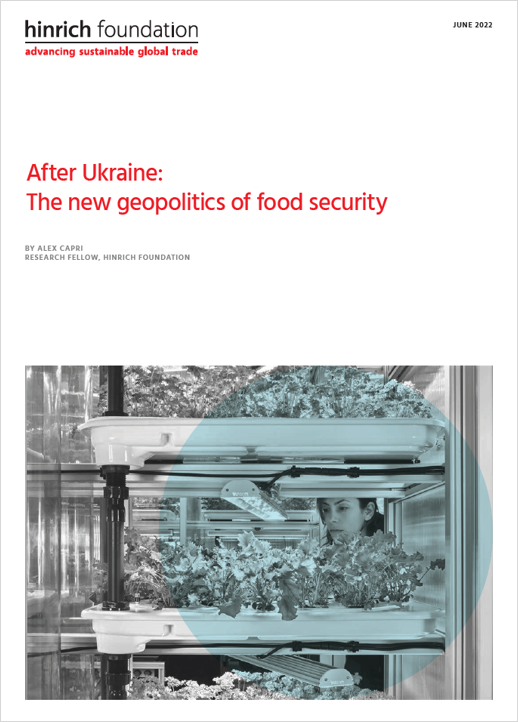Published 14 June 2022
War in Europe has exposed the fragility and vulnerabilities of the world’s food supply system and threatens to intensify both food insecurity and competition. Like other strategic sectors such as semiconductors and critical materials, food-related global value chains face increased fragmentation, regionalization, and localization.
Russia’s invasion of Ukraine has upended geopolitics and hastened the international community’s departure from an open global trading system. Even before the Ukraine war, a more widespread strategic decoupling has been underway, driven primarily by systemic incompatibilities with China’s economic model. Governments are increasingly seeking to secure and ring-fence their own critical supply chains within friendly shores. Following the semiconductors, cleantech, and pharmaceuticals industries, the last area to succumb to decoupling involves arguably the most vital of traded commodities: food.
This study by Research Fellow Alex Capri examines the realpolitik of food security by focusing on food generating and enhancing technologies that governments have resorted to in their pursuit of food-related strategies.
- Section I begins with a snapshot of Russia and Ukraine’s position at the center of the world’s food supply chains and an examination of how the war is fundamentally shaking up this system.
- Section II reviews the different types of emerging technology associated with food production in a world undergoing the challenges of climate change.
- Section III peers through the lens of techno-diplomacy to explore trends in emerging strategic partnerships related to food security.
© The Hinrich Foundation. See our website Terms and conditions for our copyright and reprint policy. All statements of fact and the views, conclusions and recommendations expressed in this publication are the sole responsibility of the author(s).







